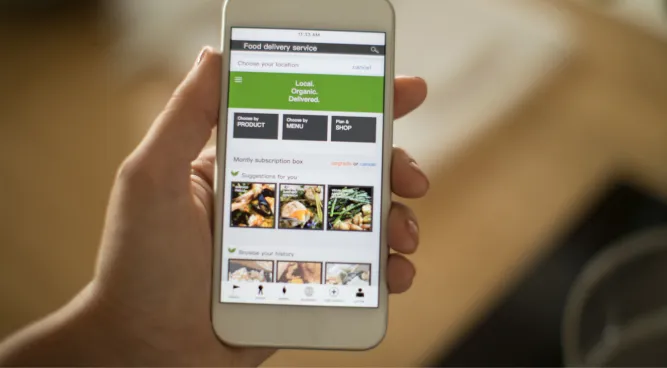Table of Contents
Introduction
Business VoIP Mobile should come with a wide variety of business features. These include automated attendants that help callers find the right person to help them and integrations with CRM software so that phone representatives can view pertinent data about clients.
VoIP services also require reliable Internet connectivity. Make sure your provider offers a stable network and provides 24/7 customer support.
Cost
When evaluating business VoIP providers, it would be best to consider your company’s communications needs. Start by writing down your operational requirements and features you want to implement. Your list might include a toll-free number, an automated attendant, call routing, or even voicemail and fax.
Ensure that the provider you’re considering has all the features you need and their network can handle them. Some providers offer testing tools on their websites to show how well your current internet connection can support VoIP, while others allow you to simulate multiple calls to see how the network performs.
The best VoIP providers are confident enough in their quality to offer a satisfaction guarantee. This allows you to test their service and cancel if it’s unsuitable for your business needs. In addition, look for a provider that offers regular software updates to keep your communications secure. The provider should also have multiple data centers so that if one server fails, another can take over in real time.

Features
The best VoIP mobile providers will have comprehensive features that support business communications. Check out each provider’s list of available plans to determine which features are included in each tier and which ones cost extra. Look for security measures such as encryption and authentication, too.
Make sure to verify the uptime of each provider, too. Since VoIP uses the Internet, unexpected outages can happen. You’ll want a provider that can promise at least 99.9% uptime so your communications don’t come to a screech if there’s an outage.
Also, check out each VoIP provider’s mobile app and integrations. These features will help your team stay productive and elevate the customer experience. Also, they may save your team money by eliminating the need for multiple apps to do a single job. Ask each provider whether they offer a full-featured mobile VoIP app and what type of smartphone devices their app supports. This will ensure your team can work wherever they are without worrying about connectivity and clarity issues.
Reliability
Choosing a VoIP provider that offers real-time customer support is essential. Look for fast response times, multiple channels (phone, email, chat), and an overall positive experience. This will save your team from days or weeks of unresolved issues and ensure that they can use VoIP mobile features with ease.
Check if the business VoIP provider has hidden charges or fees, including installation or hardware costs. Also, ensure they have a clear pricing structure that shows you upfront what each plan will cost for your desired team size. It would be best to ask about their uptime and reliability to see how often their network experiences problems. The best providers will have multiple data centers that offer redundancies in case one of the servers fails. They will also test their networks frequently to ensure that the quality of calls is crisp and consistent. This is crucial for sales and customer service teams relying on phones to communicate with clients.
Releated: mobile device management remote control

Customer Service
Check out consumer reviews once you narrow your list of potential business VoIP providers. These can give you a sense of the provider’s reliability and quality.
Another critical factor is scalability. If you know your team is growing shortly, look for a VoIP system that can easily accommodate these changes. Some VoIP providers even have online tools to test whether their services will work with your existing phones and internet connections before you commit to a plan.
In addition to scalability, you should ensure your chosen VoIP system can support remote workers. Some providers offer a mobile app that lets employees work from home or elsewhere without losing access to crucial business features. It’s also essential that your chosen VoIP solution can integrate with your CRM and other business tools to improve productivity. Most top providers support this type of functionality. This will help your teams work efficiently and provide a better customer experience.
Final Thought: VoIP Mobile
Selecting the optimal VoIP mobile provider for your business involves a careful assessment of your specific communication needs, budget considerations, and the quality of services offered. Prioritize providers that offer seamless integration, reliable customer support, cost-effective plans, and advanced features to ensure that your business maintains efficient and effective mobile communication. By aligning your choice with your unique requirements, you can harness the full potential of VoIP technology to enhance your business operations and overall productivity.
FAQs
What is a VoIP mobile?
A VoIP mobile refers to a mobile phone or device that utilizes Voice over Internet Protocol (VoIP) technology to make voice calls over the internet, bypassing traditional cellular networks.
Are there VoIP mobile phones?
Yes, there are VoIP mobile phones available. These devices are specifically designed to support VoIP calls and often come with dedicated apps or software to enable internet-based voice communication.
Is mobile VoIP free?
Mobile VoIP can offer significant cost savings since it relies on internet connectivity rather than traditional mobile networks. While many VoIP services offer free calls between users of the same service, external calls to landlines or mobiles might incur charges, although these are often lower than traditional mobile service rates.
How does mobile VoIP work?
Mobile VoIP operates by converting voice signals into digital data packets that are transmitted over the internet. Specialized apps or software on VoIP-enabled mobile devices facilitate this process. These apps connect to VoIP servers, which manage the call setup, routing, and conversion of digital data back into audible voice at the recipient’s end, enabling voice communication using internet connections.



















